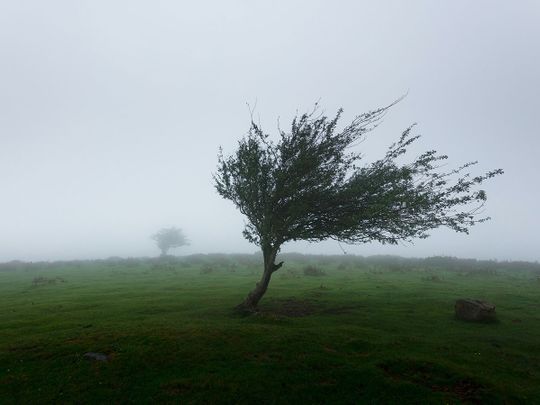
British singer Cat Stevens (Yousuf Islam) once sang: “I listen to the wind…”
But which wind do you think it was? A harmattan? Mistral? Simoom? Or something else?
Click start to play today’s Word Search, where you can spot the many different kinds of wind.
No one form of wind is like another.
The simoom that’s mentioned in today’s puzzle, for instance, is an extremely hot, dust-laden, dry wind found in Arabia and the Sahara Desert. According to Encyclopaedia Britannica, the word is an Arabic term for “poison wind”, and refers to the wind’s tendency to cause heatstroke, because it brings more heat to the human body than is removed by perspiration. Simoom can often reach up to a scorching 55 degrees Celsius!
Another dry desert wind in today’s puzzle is surprisingly cold. The harmattan is a cold, dusty season that occurs in Sub-Saharan Africa, between the end of November and March. As the wind passes over the desert, it collects fine dust particles and causes low temperatures. It also kicks up a dust so dense that it reduces radiation from the sun, and decreases its warmth.
While a cool wind in the desert sounds pleasant, it’s anything but. The 2016 edition of the online journal Environment Health Insights found that in west Africa, morbidity rates from desert dust (made words by harmattan season) are higher than in other areas. And according to the international State of Global Air report in 2018, Nigeria has the third highest premature pollution-related deaths in the world – and the highest in Africa. In fact, air pollution is the second-largest killer in the continent.
Lastly, discover the mistral wind, a cold and dry strong wind in the south of France that blows along the Rhone River valley towards the Mediterranean Sea. It can blow for several days at a time, and reach a velocity of about 130km per hour as it moves out over the Rhone delta.
The word mistral comes from the old Occitan dialect, meaning “masterly”. And it truly is. Many of the trees in its path are forever bent in the direction of the prevailing wind. This kind of wind clears up the skies, and blows away pollution and dust. It’s also known to help give Provence its reputation for a kind of luminous light that’s attracted painters for generations.
Which kind of wind is your favourite? Play today’s Word Search and tell us at games@gulfnews.com.







